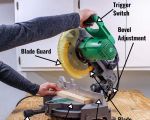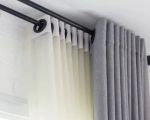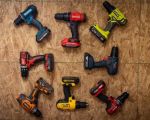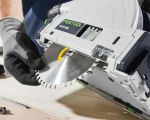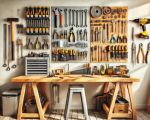- why-precision-drilling-requires-specialized-tools
- key-features-to-consider-in-the-best-drills-for-precision-work
- different-types-of-precision-drills-and-their-use-cases
- real-user-story-from-frustration-to-perfect-holes
- expert-tips-on-choosing-the-right-precision-drill
- where-to-find-the-best-drills-for-precision-work
1. Why Precision Drilling Requires Specialized Tools
Drilling isn’t just about making holes—it’s about making the *right* holes in the *right* way. Whether you're a jewelry maker, a DIY electronics enthusiast, or a cabinetmaker working on intricate woodwork, you know that even a millimeter off can ruin the entire project. That’s why identifying the best drills for precision work isn’t just useful—it’s essential.
Standard drills often lack the finesse needed for controlled, clean entry points or micro-drilling applications. They may vibrate too much, be too bulky, or simply offer too much torque. For anyone serious about detailed craftsmanship, a specialized precision drill is not just a convenience—it’s the cornerstone of quality.
2. Key Features to Consider in the Best Drills for Precision Work
2.1 Speed Control and RPM Range
Precision often means slower speeds and tighter control. The best drills for precision work typically offer variable speed settings, allowing you to tailor RPM to material type and bit size. For example, drilling into acrylic or brass requires slower speeds than softwood.
2.2 Ergonomics and Grip Stability
A precision drill should feel like an extension of your hand. Look for slim bodies, rubberized grips, and lightweight construction that reduces fatigue during extended use. This is especially important for tasks like circuit board drilling or jewelry fabrication where dexterity is key.
2.3 Chuck Type and Bit Compatibility
Mini keyless chucks or collet systems allow for finer adjustments and better stability. You’ll often be working with smaller diameter bits, so a drill that securely holds micro-bits (often 1/32 inch or smaller) is crucial to avoid slipping and damage.
3. Different Types of Precision Drills and Their Use Cases
3.1 Rotary Tools for Micro Work
Rotary tools like the Dremel series are perfect for delicate drilling tasks—engraving, jewelry, electronics. They’re not just precise but also multifunctional, often doubling as grinders, sanders, or polishers. While they’re not ideal for deep drilling, they shine in detail-focused tasks.
3.2 Benchtop Drill Presses for Repetitive Accuracy
If you’re working in a workshop setting and need perfect vertical holes every time, a benchtop drill press is your go-to. These offer unmatched consistency and control, especially for drilling into metals or hardwoods. Depth stops, angle adjustments, and high-precision tables make these ideal for serious builders.
3.3 Compact Cordless Drills for Light Precision Tasks
Some compact cordless drills combine lightweight bodies with excellent speed control. These are great for mobile users—cabinet installers, field technicians—who need accuracy but also portability. Just be mindful that not all compact drills are built for true precision, so vet models carefully.
4. Real User Story: From Frustration to Perfect Holes
A small-business artisan, Mia, shared her story on a woodworking forum. She used a regular cordless drill for her handmade wooden toys. Despite her talent, she struggled with crooked dowel holes, resulting in wasted materials and hours of rework. After switching to a benchtop precision drill, her failure rate dropped dramatically. Now, she says, “My projects look more professional, and I finally feel confident charging what they’re worth.”
This kind of transformation isn’t rare. Often, the barrier to precision isn’t skill—it’s the wrong tool. Choosing a drill purpose-built for accuracy can take your work from amateur to professional instantly.
5. Expert Tips on Choosing the Right Precision Drill
5.1 Match the Tool to Your Project
There’s no one-size-fits-all. Jewelers may need a rotary tool, while model builders might prefer a precision hand drill. Think in terms of control, material, and portability. Consider starting with a mid-range tool and upgrading as your needs evolve.
5.2 Don’t Overlook Accessories
Sometimes the bit matters more than the drill. Invest in high-quality bits specifically designed for the materials you work with—carbide for metal, brad-point for wood. Use drill guides or stands to enhance consistency when needed.
5.3 Prioritize Brands Known for Precision
Brands like Dremel, Proxxon, Bosch, and Makita have earned reputations for quality in the precision market. While budget models may tempt you, precision tools are one area where it's worth investing a bit more for lasting value and performance.
6. Where to Find the Best Drills for Precision Work
Navigating the ocean of options can be overwhelming. That’s why many creators turn to ToolNest—a platform tailored to serious DIYers and professionals. At ToolNest, you’ll find carefully curated selections of the best drills for precision work, reviewed and rated by real users with real-world applications.
From micro rotary tools for fine jewelry work to heavy-duty benchtop drill presses for woodworking, ToolNest filters tools by project type, material, and drill size. It’s the easiest way to avoid decision fatigue and invest confidently in tools that elevate your craft.


